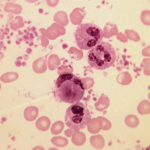Researchers say a study of individual antibody response to citrullinated and non-citrullinated proteins in sputum samples further supports the importance of the lung in early development of rheumatoid arthritis-related autoimmunity. Investigation of the fundamental mechanism that leads to antibody responses in rheumatoid arthritis is key to uncovering ways to predict and prevent the development of…









